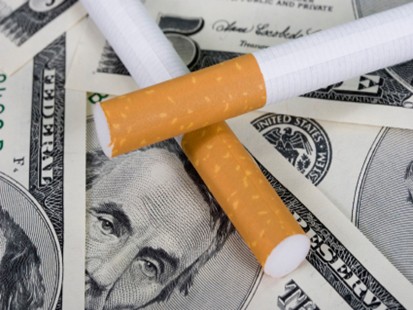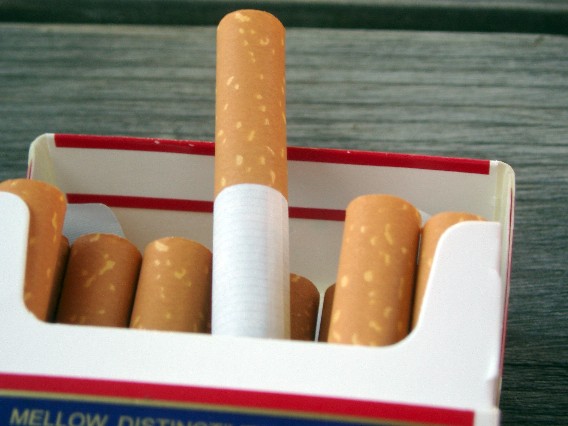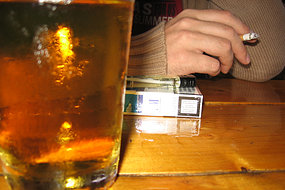Philip Morris/Tobacco-Free Kids FDA Bill Resurfaces
Submitted by Anne Landman on
 A bill has reappeared and is moving rapidly through Congress that would allow the U.S.
A bill has reappeared and is moving rapidly through Congress that would allow the U.S.

Submitted by Anne Landman on
 A bill has reappeared and is moving rapidly through Congress that would allow the U.S.
A bill has reappeared and is moving rapidly through Congress that would allow the U.S.
Submitted by Sheldon Rampton on
Submitted by Diane Farsetta on
Following President Barack Obama's first address to Congress, which highlighted policy goals "ranging from expanding health-care coverage to cutting farm subsidies to cutting wasteful defense projects," corporate front groups are fighting back.
Submitted by Anne Landman on
 Nick Harris, the corporate affairs manager of Gallaher Group, the world's third largest tobacco company and the British subsidiary of
Nick Harris, the corporate affairs manager of Gallaher Group, the world's third largest tobacco company and the British subsidiary of
Submitted by Diane Farsetta on
"For decades prior to passage of clean-water laws in the 1970s, defense firms routinely dumped perchlorate, used in rocket fuel to generate an intense burn, into the ground and waterways. The substance has tainted water supplies in at least 26 states," and is linked to such health threats as "neurological impairments for infants." Military companies and U.S.
Submitted by Judith Siers-Poisson on
A new study found that there is a higher health cost associated with corn-based biofuels than with traditional energy forms.
Submitted by Bob Burton on
The U.S. Consumer Product Safety Improvement Act, which was passed in the wake of controversy over the manufacturing standards of Chinese toy companies, set new lead limits for toys, clothes and other products which are aimed at children under 12. Associated Press reports that the Coalition for Safe and Affordable Childrenswear -- which it states "represents manufacturers and family business workers" -- is leading the protests against the new standards.
Submitted by Sheldon Rampton on
On January 26, the New York Times examined "The Epidemic That Wasn't" -- breathless news reporting from the 1980s that predicted an epidemic of irreparable damage to inner-city children whose mothers used crack cocaine. Actually, it turns out, the so-called "crack babies" are doing fine.
 Several newspapers reported in late January on the death of Horace R. Kornegay, Jr., who served as the Executive Director of the Tobacco Institute from 1969 to 1986. Mr. Kornegay's passing was little noticed, but he was one of the more notable opponents of public health measures in American history.
Several newspapers reported in late January on the death of Horace R. Kornegay, Jr., who served as the Executive Director of the Tobacco Institute from 1969 to 1986. Mr. Kornegay's passing was little noticed, but he was one of the more notable opponents of public health measures in American history.
Submitted by Anne Landman on
 The Australian alcohol industry is taking a leaf from the tobacco industry and has promised to voluntarily devote ten percent of its advertising space to promoting web sites that discourage binge drinking, particularly among youth.
The Australian alcohol industry is taking a leaf from the tobacco industry and has promised to voluntarily devote ten percent of its advertising space to promoting web sites that discourage binge drinking, particularly among youth.
Center for Media and Democracy (CMD)
520 University Ave, Ste 305 • Madison, WI 53703 • (608) 260-9713
CMD is a 501(c)(3) tax-exempt non-profit.
© 1993-2024